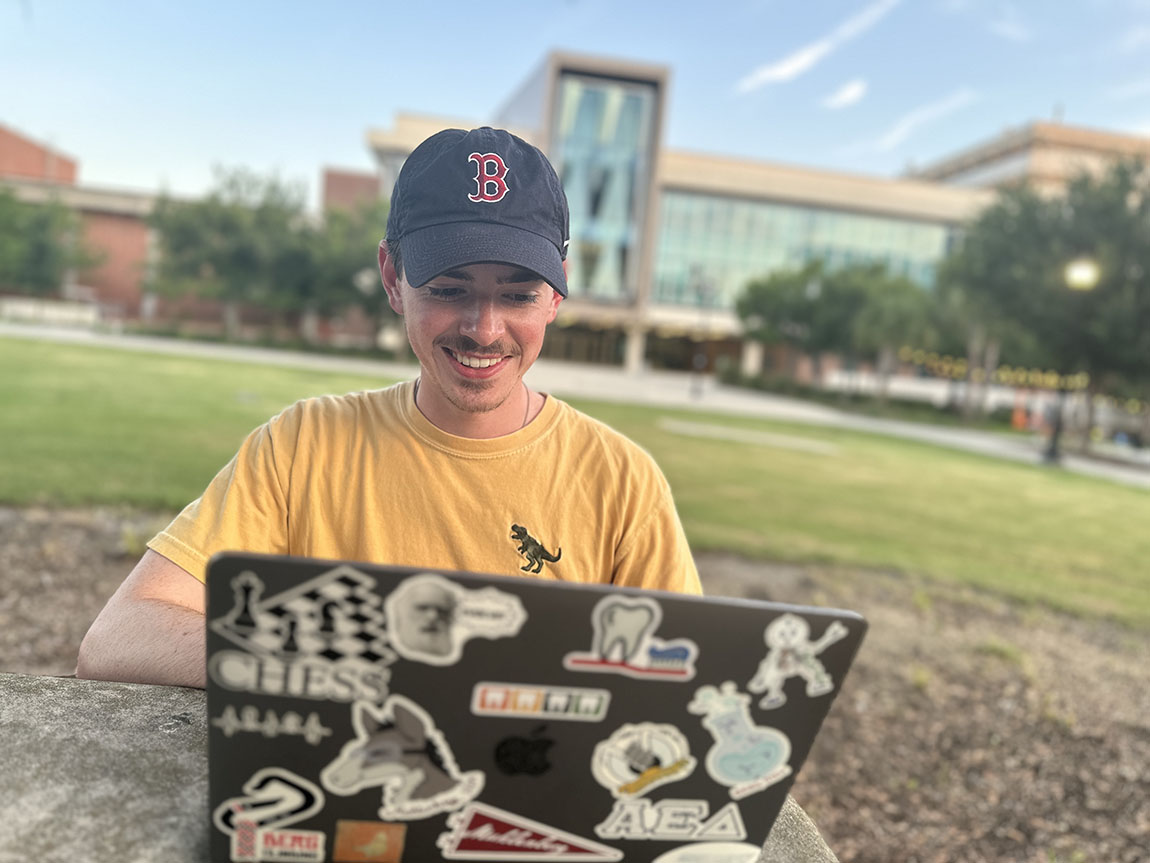Summer Research: Nolan Eichorn ’26 Trains a Machine Learning Model
Eichorn, a mathematics major, is participating in the National Science Foundation’s Research Experiences for Undergraduates (REU) program at the University of Florida.Thursday, June 26, 2025 11:24 AM
 Nolan Eichorn ’26
Nolan Eichorn ’26More than 70 Muhlenberg students are conducting research this summer — about 60 on campus, about 10 more remotely, and a handful of others through other institutions.
Research challenges students to apply what they’ve learned in the classroom, hone their discipline-specific skills, and make an impact in their field. Learn more about Muhlenberg’s transformative summer research program.
Nolan Eichorn ’26
Hometown: Warminster, Pennsylvania
Major: Mathematics (pre-dental)
Describe your summer research.
I am modifying a machine learning model to test evolutionary hypotheses on butterflies. Using artificial intelligence, I am able to analyze butterfly images obtained from the natural history museum and use these pictures to train the model. After training, I test the model to see how well it can predict the species and subspecies of butterfly images it has not seen before. This helps turn data that has only been previously qualifiable to biologists into quantifiable data that can help more accurately classify butterflies.
Why are you interested in research generally and in this project, through the University of Florida REU, specifically?
This research allows me to learn how artificial intelligence works and how to build and train a machine learning model. I entered this research hoping to learn how to apply these models in broader contexts and use machine learning in other fields. I applied to a wide range of REU programs for this summer, from number theory to disease control to material science, and when I got an acceptance to the University of Florida’s program, I was ecstatic! It was one of the only programs that I had very little experience in, but it was one I was very hopeful to get into, so I could have the opportunity to learn something new that really interested me.
“When I got an acceptance to the University of Florida’s program, I was ecstatic! It was one of the only programs that I had very little experience in, but it was one I was very hopeful to get into, so I could have the opportunity to learn something new that really interested me.”
What are the most challenging and rewarding parts of your research?
The most challenging part of my research is fully understanding the code behind the AI. I often get errors or results that are unexpected, so parsing through my code to find what has gone wrong can often be challenging and frustrating. However, the satisfaction achieved once I fix the error or get an output that I expected is incredibly rewarding. Although learning how these models are built is very difficult due to their complexity, it feels good to add new parts and push the model to be better to allow it to train and learn more efficiently.
How is this experience shaping your understanding of what you want to do in the future?
I have been set on going to dental school after graduation, but I hope to use this experience as a stepping stone to perform similar research in dental school. Research like mine has been done with mandibles, and I believe that machine learning can be used in a large context, both for patients and doctors, in the future. It seems that AI is the future of our world, and being able to understand it and apply it in medicine could be advantageous to me. I hope to be able to use this in dental school and beyond.
“It seems that AI is the future of our world, and being able to understand it and apply it in medicine could be advantageous to me. I hope to be able to use this in dental school and beyond.”
Eichorn is also the president of the Alpha Epsilon Pi fraternity and the past president of intramural soccer and the Pre-Dental Club. He has conducted research at Muhlenberg in mathematics and chemistry.
